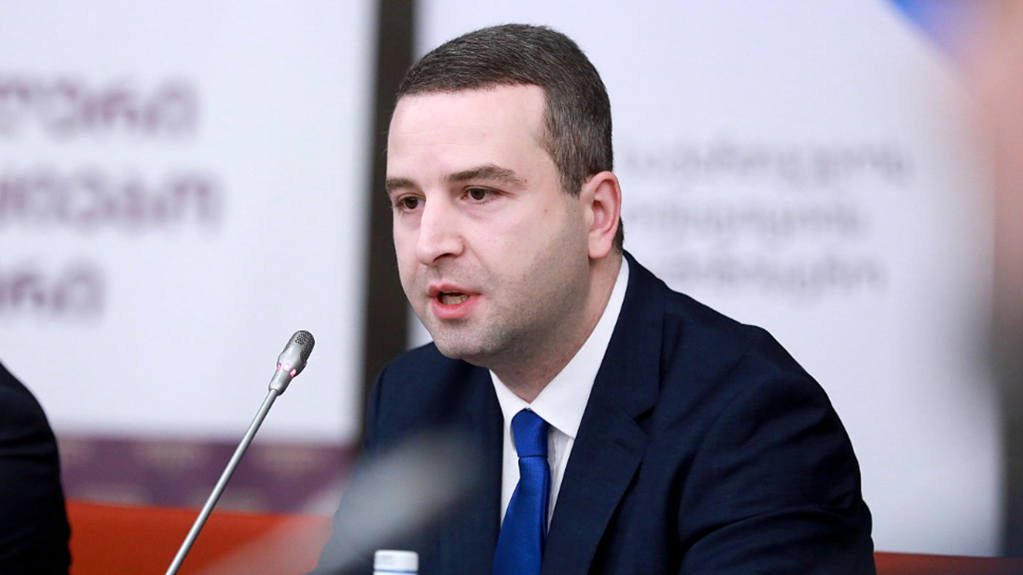Opposition MPs have summoned the Special Investigation Service head, Koka Katsitadze, and the Personal Data Protection Service head, Lela Janashvili, to a session of the Human Rights Protection Committee. Parliament members have questions regarding police and special forces' violence against protest participants, illegal interference in journalists' professional activities, and the massive phone calls and threats to Russian law-abiding citizens and their families. Additionally, they seek clarity on the ruling Georgian Dream initiative to create a database, the so-called blacklist.
News
Trending stories
- 1 Former Prime Minister Garibashvili Sentenced to Five Years in Prison After Plea Deal
- 2 Otar Partskhaladze Charged with Organizing Murder of Businessman Levan Jangveladze
- 3 Shalva Papuashvili Says Georgian Dream Filed Complaint with BBC
- 4 Georgian Dream Party Further Tightens Grants Law, Introducing Up to 6 Years in Prison
"Actually, no specific legal consequences have been brought in any of the cases related to the crackdown on peaceful protesters over the past month and a half, nor for the mass terror organized in the country, which involved calling and scaring people and small children.
This primarily concerns the Special Investigative Service, whose head we will summon at the very first committee hearing to take public responsibility for the ongoing cases before society and parliament. Instead of updating the information with Facebook posts, they should report within the framework of specific responsibility what steps have been taken to investigate these cases and to impose appropriate legal consequences. This service is responsible for investigating police violence against protest participants opposing the Russian Law, attacks and persecution of individuals with differing opinions, cases of illegal interference in the professional activities of journalists, and infringements of the right to private life," said Beka Liluashvili, oppositional For Georgia party member.
Deputies believe that the Special Investigation Service is de facto abolished and does not investigate crimes committed by police officers, further demonstrating that it is driven by political will. "I have a three-page list of questions that will be sent to Koka Katsitadze. He must provide answers because this service is accountable to parliament," noted independent MP Teona Akubardia.
The Personal Data Protection Service head, Lela Janashvili, was summoned to the committee meeting by the Euro Optimists members, Khatia Dekanoidze and Roman Gotsiridze. According to them, the phone calls made from foreign countries and Georgian numbers, considering their frequency, systematic nature, and the specific group of addressees, raise a well-founded assumption that data processing may be done in violation of the law, using the databases of relevant state agencies. Deputies demand an answer as to whether the service has determined the source of the calls and who is organizing them.
"The Parliament Chairman has announced an initiative that the ruling party will create a data register of people who express anti-government sentiments on social networks. What is the position of the Personal Data Protection Service regarding the creation of this registry? How compatible is the creation of such a registry with Georgian law on personal data protection?" wonders Roman Gotsiridze.
In Tbilisi, special forces and police dispersed peaceful protesters multiple times during demonstrations against the Russian Law. About 200 participants were arrested. Representatives of the Internal Affairs Ministry severely beat protesting MPs Aleksandre Elisashvili and Levan Khabeishvili, civil activist Davit Katsarava, and others. Between April 15 and May 17, representatives of the Public Defender visited 180 people arrested at the rallies, of whom 93 reported improper treatment and violence by the police. Seventy-one detainees turned to the Special Investigation Service for a response.
Unknown individuals, who have not yet been arrested by the Internal Affairs Ministry, attacked several participants in actions against the Russian Law. Among the victims were politicians, representatives of non-governmental organizations, and activists, including Gia Japaridze, Giorgi Mumladze, Boris Chele Kurua, Nodar Chachanidze, Dimitri Chikovani, Lasha Ghvinianidze, Giorgi Shengelia, Ana Subeliani's father, Lado Abkhazava, Giorgi Kldiashvili, and others.
The attack on a group of youth in Heroes Square and the ambush by unknown masked individuals near the TV Pirveli building have not elicited any response from the Internal Affairs Ministry.
Additionally, independent journalists and heads of non-governmental organizations have become targets of a hate campaign. Unknown individuals have placed insulting, defamatory, threatening, and inciting posters near their homes and offices, and have damaged their cars.















